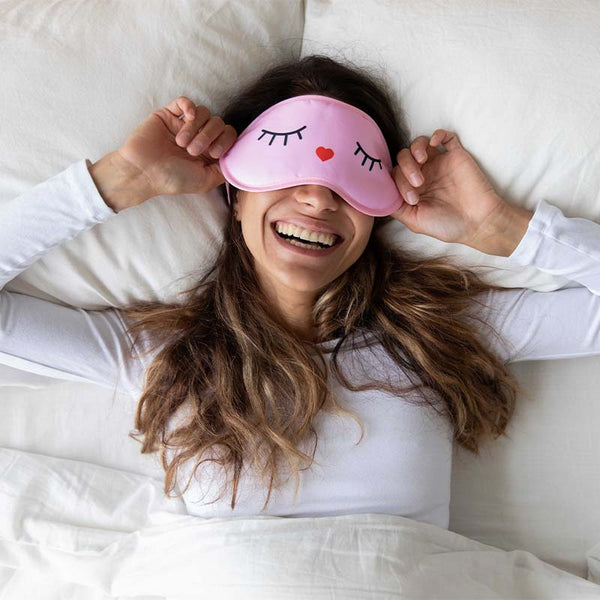The Huge Impact Of Sleep On Your Health, Productivity, and Well-Being

Sleep is hardly an exciting subject. Today, most people would prefer to talk about revolutionary diets, training plans, and supplements for optimal health, fitness, and productivity.
But the truth is, while not exactly an inspiring subject, getting adequate sleep is essential. We might even say that rest is at the core of health and well-being.
But what makes sleep so unique? What are the consequences of missing out on it? More importantly, how can we improve our sleep?
Let’s dig in and find out.
The Importance of Sleep For Cognition, Productivity, and Well-Being
We don't have to look at the research to understand sleep’s profound importance for cognition, productivity, and well-being. All you need to do is think back to a time when you couldn’t sleep well. Maybe you felt anxious, didn’t have as much time for sleep, or chose to prioritize other things over your recovery.
How did you feel when you didn’t sleep enough? Chances are, you experienced the common symptoms:
- Difficulty concentrating
- Lack of motivation
- Memory issues
- Low productivity
- Poor mood and mood swings
Whether we like it or not, sleep is essential for us. It’s precisely during sleep that the body has time to recuperate and remove metabolic by-products.
The Importance of Sleep For Our Health
In his book, Why We Sleep, Matthew Walker puts it eloquently:
“Sleep is the single most effective thing we can do to reset our brain and body health each day––Mother Nature's best effort yet at contra-death.”
Aside from its impact on our cognition and mood, sleep also plays a massive role in our physical health. Most notably, adequate sleep is essential for optimal metabolic functioning. Research shows that poor sleep can impact glucose metabolism, reduce our ability to burn fat, and increase our risk of developing type 2 diabetes (1, 2, 3).
Studies also find a correlation between sleep deprivation and obesity, hypertension, heart disease, early death, and more (4).
Some literature also suggests that sleep plays a vital role in reducing the risk of neurodegenerative diseases, such as Alzheimer’s. For example, in one paper, researchers indicated that sleep deprivation increases levels of a protein linked to Alzheimer’s (5).
Four Steps to Better Sleep Every Night
1. Optimize Your Sleep Environment
The first step to improving your sleep is to improve your surrounding environment––the bedroom. Specifically, you should focus on four things:
- Room temperature (65 to 70 degrees F)
- Complete darkness (blackout curtains can help)
- Complete silence (using earplugs can work)
- Investing in a quality mattress and pillow
2. Establish a Simple Pre-Bedtime Routine
Having a pre-bedtime routine is beneficial because it allows you to wind down and get sleepy. There is no ‘best’ recipe for a bedtime routine, but some mixture of journaling, reading, meditating, stretching, and taking a bath can work well.
These activities induce relaxation and allow you to take your eyes away from the harsh blue light of screens that can hinder melatonin production (6).
3. Be Careful With Caffeine
Caffeine is a nervous system stimulant that boosts our metabolic rate, improves concentration, and lifts our mood (7, 8). But despite these benefits, we need to be careful.
The issue with caffeine is that it has a half-life of around five hours (9). Meaning, if you ingest 300 mg at 5 PM, you will likely have 150 mg in your system at 10 PM, which can disrupt your sleep.
As a rule of thumb, you should avoid caffeine within eight hours of going to bed.
4. Avoid Alcohol For Better Sleep
Alcohol in the evening - the good old nightcap - seems like a good strategy for better sleep. You get tipsy, and you fall asleep more quickly. The problem is, alcohol appears to worsen sleep quality and rob us of much-needed REM sleep (10). Sure, you might fall asleep more quickly, but there is a good chance that you’ll suffer from poor sleep quality.
In same category
-
![]()
The Huge Impact Of Sleep On Your Health, Productivity, and Well-Being
Sleep is hardly an exciting subject. Today, most people would prefer to talk about revolutionary diets, training plans, and supplements...
-
![]()
The Huge Impact Of Sleep On Your Health, Productivity, and Well-Being
Sleep is hardly an exciting subject. Today, most people would prefer to talk about revolutionary diets, training plans, and supplements...
-
![]()
The Huge Impact Of Sleep On Your Health, Productivity, and Well-Being
Sleep is hardly an exciting subject. Today, most people would prefer to talk about revolutionary diets, training plans, and supplements...






